#aapi books
Text
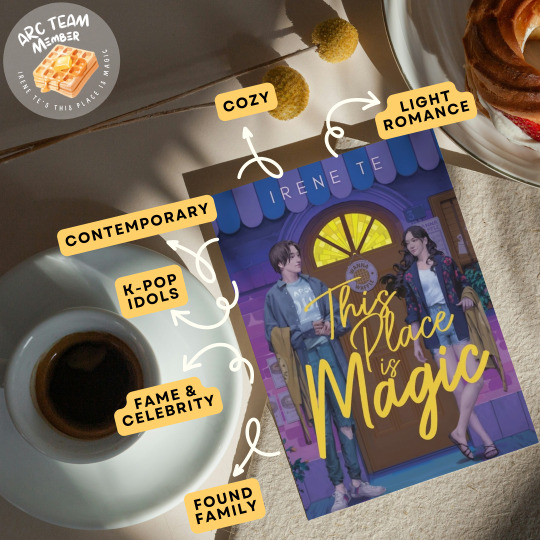
Just received my ARC for "This Place Is Magic," and I'm bubbling with excitement! A huge shoutout to @irenewritesthings for crafting this cozy contemporary gem set to release on April 30th and to @literaryinspired for the chance to be part of the ARC and Street Team. It's a story where disillusion meets discovery, featuring K-Pop idols, light romance, and the warmth of found family. A must-read for fans of Axie Oh, Maurene Goo, and Jenny Han, this novel promises a comforting escape into a world where authenticity triumphs, and magic lies in the most unanticipated corners. Want to join the adventure? Sign-ups are still open, so don't miss your chance! #LiteraryInspiredARCs
5 notes
·
View notes
Text
book recs for aapi heritage month 🕺🕺
a bit late, but happy aapi heritage month! i’ve been getting back into reading this past year after my pandemic slump, so here’s some books that i really enjoyed by aapi authors
the poppy war trilogy by rf kuang - this series is a fantasy based on 19th-20th century china. it’s hilariously written with some of my favorite characters of all time, and deals with some really heavy topics like colonialism, the effects of warfare, and classism in a brutally honest fashion. i have so much to say about it but that’s for a much longer post-
babel: an arcane history by rf kuang - at this point i will read this woman’s grocery list, she is such a skilled writer and genius storyteller. babel is set in an alternate 1800s oxford university, in a world which the british empire’s power is built upon magic silver. babel unpacks the intrinsic ties between academia and empire from the perspective of someone on the inside and the concept of resistance. it also really hits home to the feeling of disconnect from your native language as a bilingual/third culture kid- overall just brilliant book imo. the magic system is also really interesting (as is that of rf kuang’s other work)- she builds upon the real world to create a fantasy that is engaging, but also very representative of the motifs of her work?? idk how to explain it but 🙏rebecca🙏
you’re the only one i’ve told: the stories behind abortion by meera shah - you’re the only one i’ve told is a collection of stories about abortion entrusted to shah, a medical practitioner who works as an abortion provider. the book humanizes these people and their experiences from a variety of different backgrounds and circumstances, and is a really compelling read.
we have always been here: a queer muslim memoir by samra habib - we have always been here is a memoir about habib’s experience growing up as an ahmadi muslim in pakistan, coming to canada as refugees in their teenage years, and grappling with queer identity within an environment where their body and personhood was thought to have been needed to be controlled. habib discusses faith, sexuality, and love through a lens of self discovery and finding community that you didn’t know existed.
the henna wars by adiba jaigirdar - this book is set in dublin, and follows a young bangladeshi girl named nishat. nishat has fallen for an estranged childhood friend, flávia, who just so happens to be her rival in an upcoming school business competition. and by some luck, they both have chosen to create the same business; henna tattoos. i’m a sucker for fluff so this book got me, but it also deals with appropriation and queer romance (particularly from a 3rd culture experience) quite delicately. nishat’s relationship with her sister was also so well written, and i think was one of the most compelling bonds in this book!
this is how you lose the time war by amal el-mohtar - okay i’m still in the process of finishing this book, but it has been so good so far! this is a story about two rival agents moving through a war that stretches across time, fighting tooth and nail for their own victory in a vaguely apocalyptic world. they begin a correspondence that spills into something that could change the course of time extremely literally. the writing style and descriptions are gorgeous, and the fragmented format of letters jumping across thousands of years is a really interesting reading experience. very cool book!
on earth we’re briefly gorgeous by ocean vuong - god this man is such a talent- everything good you’ve heard about his work is true and you should go read it rn. on earth we’re briefly gorgeous is written in the form of a letter from a son to his illiterate mother, and tells a story that crosses over 3 generations with it’s epicenter rooted in vietnam. the narrator unpacks how the effects of warfare, immigration and generational trauma have shaped his relationship with his mother and his own life. i’m not doing it justice (not for any of these rlly i cannot elevator pitch books), but vuong’s writing is so beautiful and intimate yet quiet? 💃💃🙏🫶👍🙏👌💃
that’s all i have for now, if you have any recs pls do tell!! to my fellow asian/pacific islander americans, your voices and stories deserve to be uplifted and celebrated without being fetishized, appropriated or pigeonholed. have a great may!
#book recommendations#books#literature#bookblr#rf kuang#ocean vuong#babel#tpw#on earth we're briefly gorgeous#samra habib#adiba jaigirdar#the henna wars#amal el mohtar#aapihm#aapi authors#aapi books#holy shit that was a lot of tags#hi my favorite person if you read through this#love my internet corner where i post to exactly one person#aapi
21 notes
·
View notes
Text
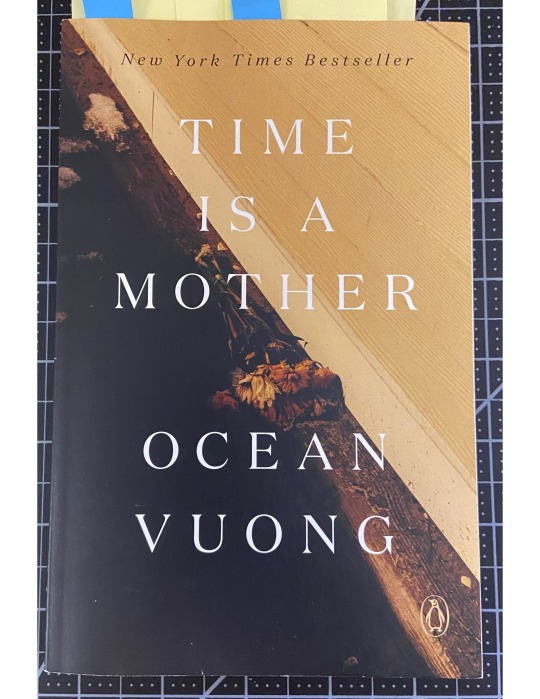

Here's two books I've been reading to help with my project!
"Time is a Mother" by Ocean Vuong is one of my new favorite poetry books. In this poetry collection, Vuong attempts to understand his grief over his mother's death, his life experiences as a gay man, and his existence as a Vietnamese American man living in America. My favorite poems are "Künstlerroman" and "Amazon History of a Former Nail Salon Worker".
"Graphic Design for Everyone: Understanding the Building Blocks So You Can Do It Yourself" has been very interesting for me personally. I'm a studio art major, so I have no experience with graphic design. However, for my zine I want to be able to use a digital medium, so I'm trying to learn as best I can.
3 notes
·
View notes
Text

Ocean Vuong by Annelise Phillips, Kinfolk Issue 36
#ocean vuong#kinfolk#asian american#night sky with exit wounds#poetry#literature#litblr#bookblr#poetblr#poet#photography#photoshoot#on earth we’re briefly gorgeous#time is a mother#aapi#aapi authors#aapi books#aapi representation#i really like this picture like its really old but there’s sthg about it#queer poetry#lgbtq artist#queer artist#queer aapi#queer asian#mlm#poc mlm#qpoc#qpoc artist
37 notes
·
View notes
Photo
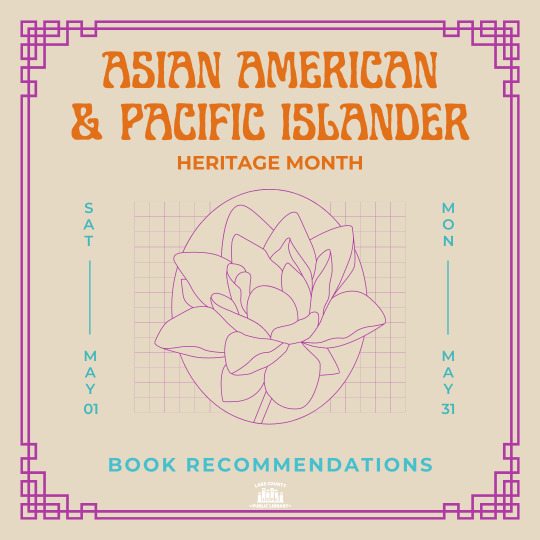
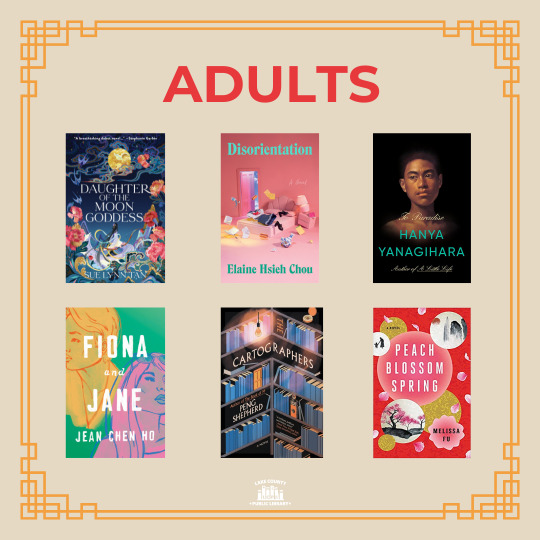

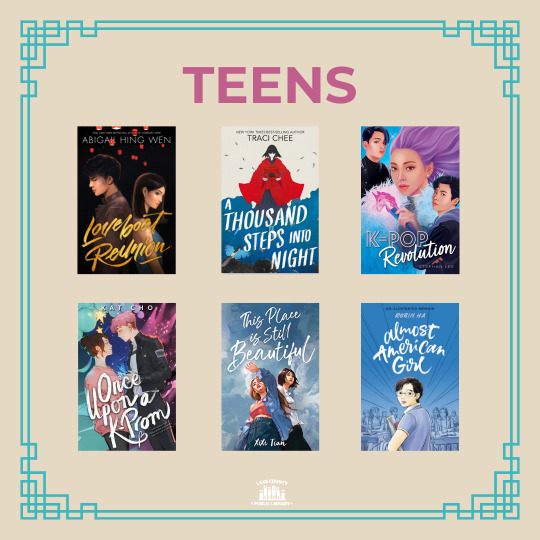
Asian American and Pacific Islander Heritage Month Book Recs
Adults:
Daughter of the Moon Goddess by Sue Lynn Tan
Disorientation by Elaine Hsieh Chou
To Paradise by Hanya Yanagihara
Fiona and Jane by Jean Chen Ho
The Cartographers by Peng Shepherd
Peach Blossom Spring by Melissa Fu
Kids:
One, Two, Three Dim Sum: A Mandarin-English Counting Book by Rich Lo
Grandpa Grumps by Katrina Moore
No Kimchi for Me! by Aram Kim
Eyes that Kiss in the Corners by Joanna Ho
Amy Wu and the Perfect Bao by Kat Zhang
The Most Beautiful Thing by Kao Kalia Yang
Teens:
Loveboat Reunion by Abigail Hing Wen
A Thousand Steps Into Night by Traci Chee
K-Pop Revolution by Stephan Lee
Once Upon A K-Prom by Kat Cho
This Place is Still Beautiful by XiXi Tian
Almost American Girl: an Illustrated Memoir by Robin Ha
See more of Kelley’s recs
#aapi heritage month#aapi books#aapi authors#book list#peach blossom spring#once upon a k-prom#a thousand steps into night#to paradise#traci chee#asian american and pacific islander heritage month#hanya yanigahara#the cartographers#abigail hing wen#peng shepherd#elaine hsieh chou#kelleysrecs#LCPL recs
14 notes
·
View notes
Text
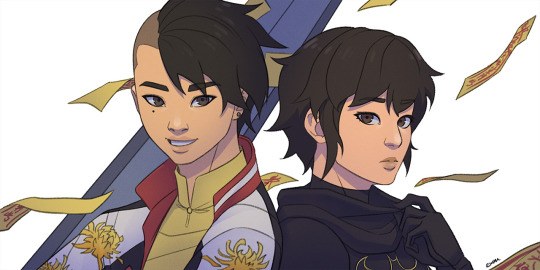
Days 9 and 10 - Xanthe Zhou and Cassandra Cain from DC Comics
Spirit World #1, which features these two, just came out this week. I don't pick up comics often these days, but it's a cool premise and the art is awesome.
#xanthe zhou#cassandra cain#dc comics#AAPIHM#2023 AAPI Heritage Month#most of the creative team and cover artists behind the book are Asian#Xanthe and Cass are Chinese#m'art#digital
235 notes
·
View notes
Text
hello, my sweet sweet tumblr friends. i have a new book out one month from saturday. here we are together, the book and i:
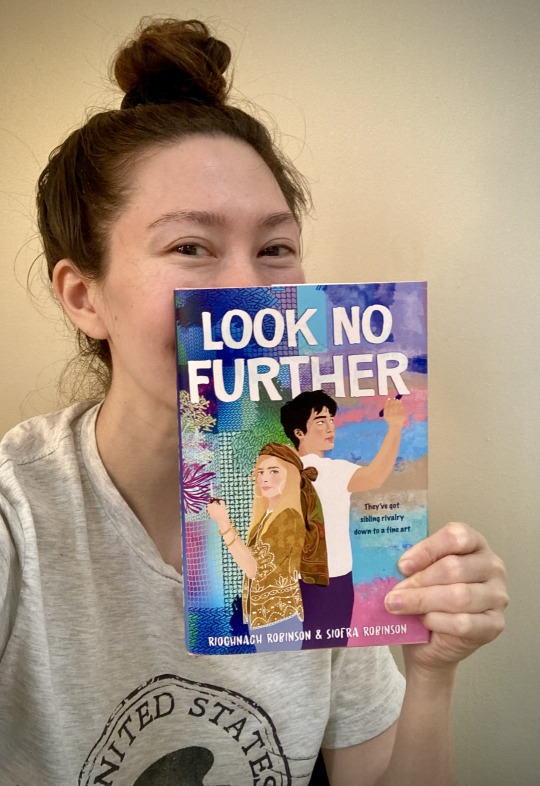
this one was fun. i wrote it with my sister! when we were young, we were cutthroat competitive. she (older) would forbid me from reading the books on her shelves, and i (gremlin) would booby-trap her room, so you decide which of us committed the greater sin. now we have a blast.
our names are pronounced REE-uh-nock and SHEE-fra, and our book was pitched as THE PARENT TRAP meets THE VANISHING HALF. it releases August 15th, 2023. logline is "Two half-Chinese half-siblings collide for the first time at a summer art camp, not knowing they're related—and begin to understand who they are as artists, as brother and sister, and as Asian-Americans."
it's a book about summer camp hijinks, about passing, about what we long for and where we belong. it also says "Robinson & Robinson" on the spine, which makes us sound like an accidental injury law firm. sweet.
of all the books with my name on it, this one is probably the "book club"-iest. if you like coming-of-age novels or stories about the AAPI diaspora, you might like this one :)
you can preorder a signed copy from my local indie here, or non-signed copies from Bookshop.org, Barnes and Noble, or Amazon. i really cannot stress enough how much every single preorder helps, as i am what the industry calls "a midlist author," also known as "an obscure author who has difficulty placing projects with publishers because of sales figures lmao." (this is not to whinge. the majority of working authors exist in this financially & existentially precarious position)
alternatively, i would be totally thrilled if you reblogged this post, or mentioned the book to any teachers, librarians, bookstore workers, or other readers in your life :)
happy summer everybody—may it be the lazy river of your dreams. xoxoxo
#riley writes books#ya lit#ya books#aapi#aapi authors#this book is very weird and personal but i think it's quite fun#maybe i'll post some quotes from it or something idk#there will definitely be more stuff about it on ig @rileyredgate#character intros etc etc. might do them here too who knows#WAIT MAYBE I SHOULD TUMBLR BLAZE THIS POST#lol
98 notes
·
View notes
Text


designed this visayan mythological wood carving for the most recent issue of THE MASK OF HALIYA by Kwento Comics!!! worked on this while i was doing wardrobe for a big commercial shoot, had so much fun 😭
thank you to the interior art team for making it look sooooo good in the final pages 🥰💕
#philippine mythology#aapi artists#comics#comic art#original comic#concept art#concept artist#comic book art#kwento comics#the mask of haliya
89 notes
·
View notes
Text
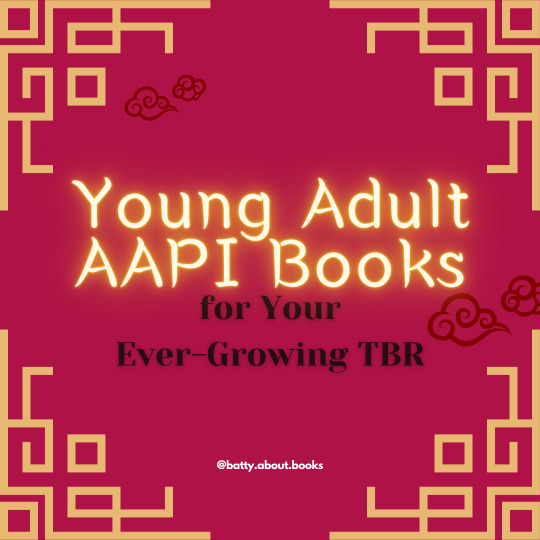
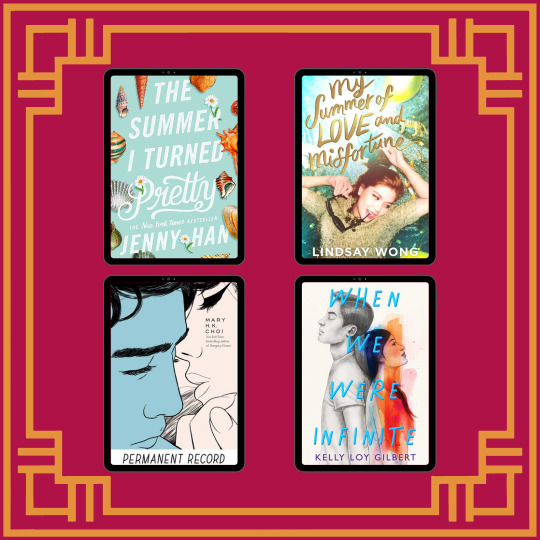

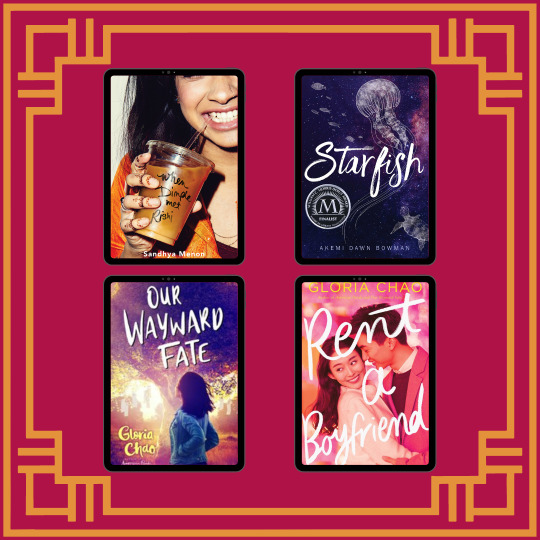

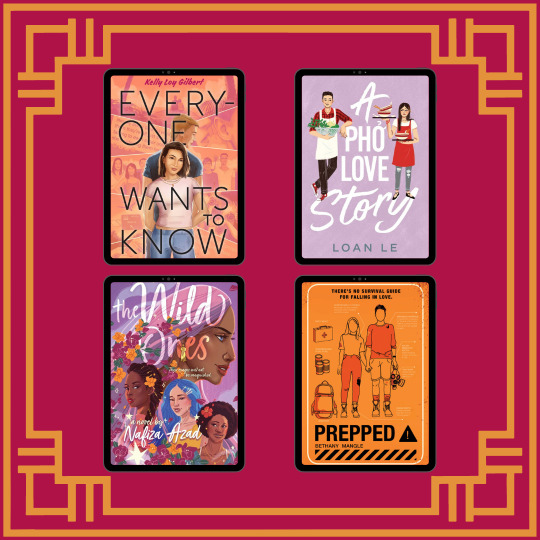


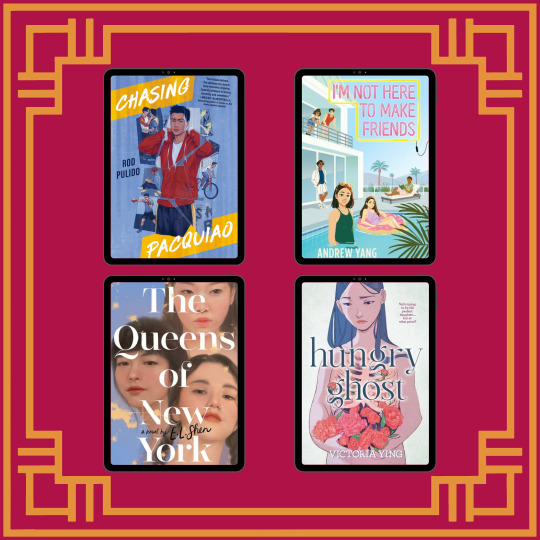

🦇 We shouldn't wait until May every year to delve into the beauty of Asian American and Pacific Islander (AAPI) voices. In May, I shared a list of the NEWEST AAPI books out this year. To keep promoting AAPI authors, characters, and stories, here are a few Young Adult AAPI books you can add to your TBR for the remainder of the year!
🏮 The Summer I Turned Pretty by Jenny Han
🏮 My Summer of Love and Misfortune by Lindsay Wong
🏮 Permanent Record by Mary H.K. Choi
🏮 When We Were Infinite by Kelly Loy Gilbert
🏮 To All the Boys I've Loved Before by Jenny Han
🏮 I Will Find You Again by Sarah Lyu
🏮 Emergency Contact by Mary H.K. Choi
🏮 American Panda by Gloria Chao
🏮 When Dimple Met Rishi by Sandhya Menon
🏮 Starfish by Akemi Dawn Bowman
🏮 Our Wayward Fate by Gloria Chao
🏮 Rent a Boyfriend by Gloria Chao
🏮 Want by Cindy Pon
🏮 The Weight of Our Sky by Hanna Alkaf
🏮 A Place to Belong by Cynthia Kadohata
🏮 Of Curses and Kisses by Sandhya Menon
🏮 Everyone Wants to Know by Kelly Loy Gilbert
🏮 A Pho Love Story by Loan Le
🏮 The Wild Ones by Nafiza Azad
🏮 Prepped by Bethany Mangle
🏮 The Infinity Courts by Akemi Dawn
🏮 Yolk by Mary H.K. Choi
🏮 Imposter Syndrome and Other Confessions of Alejandra Kim by Patricia Park
🏮 This is Not a Personal Statement by Tracy Badua
🏮 The Cartographers by Amy Zhang
🏮 The Love Match by Priyanka Taslim
🏮 This Place is Still Beautiful by Xixi Tian
🏮 Chasing Pacquiao by Rod Pulido
🏮 I'm Not Here to Make Friends by Andrew Yang
🏮 The Queens of New York by E. L. Shen
🏮 Hungry Ghost by Victoria Ying
🏮 These Infinite Threads by Tahereh Mafi
🏮 Six Crimson Cranes by Elizabeth Lim
🏮 The Marvelous Mirza Girls by Sheba Karim
🏮 A Magic Steeped in Poison by Judy I. Lin
#books#book recs#aapi authors#aapi representation#book blog#booklr#batty about books#battyaboutbooks
48 notes
·
View notes
Text
Wanted to highlight two Pacific Islander properties coming up for PI part of AAPI Heritage Month!
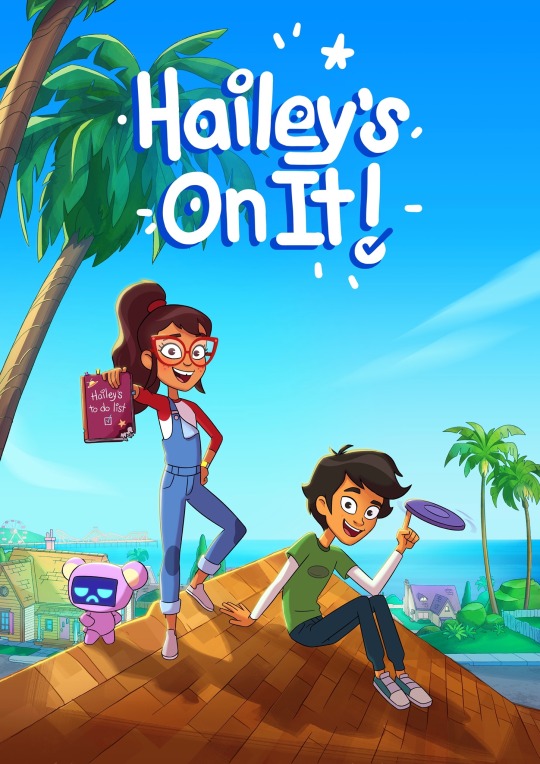
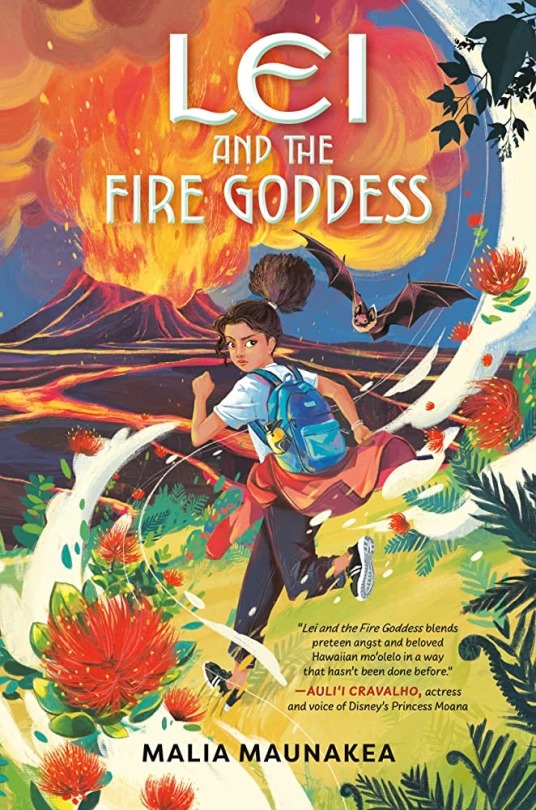
The first is ‘Hailey’s On It!”, a new Disney Channel show starring the voice of Moana, Auli’i Cravalho.
The second is middle grade book ‘Lei and the Fire Goddess’ by own voices author Malia Maunkea.
Both come out soon and you should absolutely support them!
#pacific islander#hailey’s on it#aapi heritage month#aapi month#asian american pacific islander heritage month#hawaiian#hawaii#pacific islander books#auli’i cravalho#lei and the fire goddess#the arcadia ledger
60 notes
·
View notes
Text
why yes I want to draw a Johnstantine comic for his birthday on May 10th! Why yes I'm gonna start drawing it now because I'll be busy in May with book promo stuff! Why yes it's gonna be a twin angst story thing!
#ramblings#nobody asked but I'm manifesting this to keep me accountable#why did constantine have to be born in AAPI heritage month and 4 days before Lunar Boy's book birthday#I can't pass up that timing!!
18 notes
·
View notes
Photo
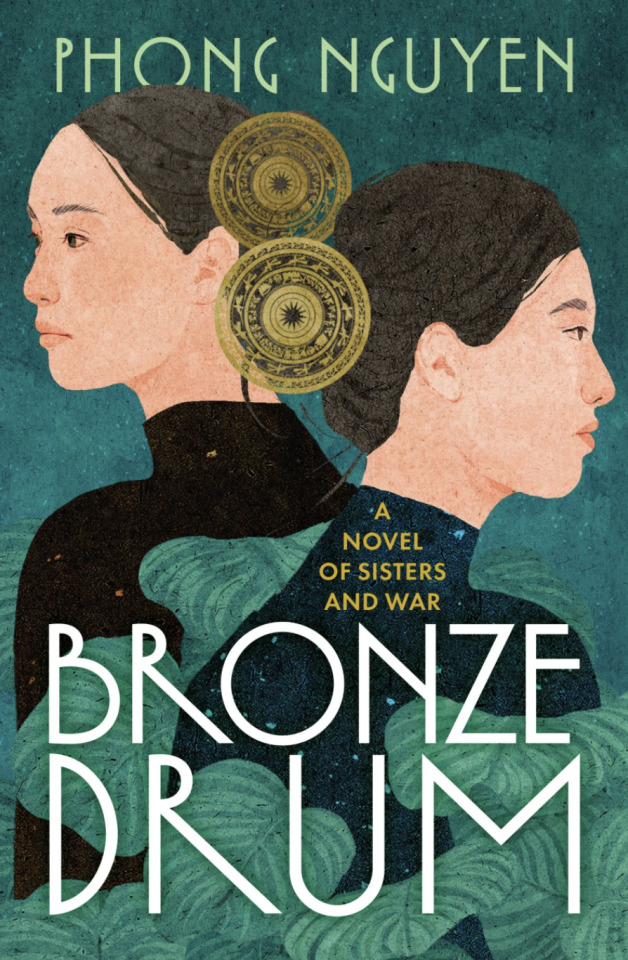
Rating: 4/5
Book Blurb: A stunning novel of ancient Vietnam based on the true story of two warrior sisters who raised an army of women to overthrow the Han Chinese and rule as kings over a united people, for readers of Circe and The Night Tiger.
Gather around, children of Chu Dien, and be brave.
For even to listen to the story of the Trung Sisters is,
in these troubled times, a dangerous act.
In 40 CE, in the Au Lac region of ancient Vietnam, two daughters of a Vietnamese Lord fill their days training, studying, and trying to stay true to Vietnamese traditions. While Trung Trac is disciplined and wise, always excelling in her duty, Trung Nhi is fierce and free spirited, more concerned with spending time in the gardens and with lovers.
But these sister's lives—and the lives of their people—are shadowed by the oppressive rule of the Han Chinese. They are forced to adopt Confucian teachings, secure marriages, and pay ever‑increasing taxes. As the peoples' frustration boils over, the country comes ever closer to the edge of war.
When Trung Trac and Trung Nhi's father is executed, their world comes crashing down around them. With no men to save them against the Han's encroaching regime, they must rise and unite the women of Vietnam into an army. Solidifying their status as champions of women and Vietnam, they usher in a period of freedom and independence for their people.
Vivid, lyrical, and filled with adventure, The Bronze Drum is a true story of standing up for one's people, culture, and country that has been passed down through generations of Vietnamese families through oral tradition. Phong Nguyen's breathtaking novel takes these real women out of legends and celebrates their loves, losses, and resilience in this inspirational story of women's strength and power even in the face of the greatest obstacles.
Review:
War, love, and sisterhood. Based on the true story of two warrior sisters who raised an army of women to overthrow the Han Chinese and rule as kings over the united people from ancient Vietnam. The story follows the two daughters of a Vietnamese lord in 40 CE in the Au Lac region of Ancient Vietnam. The Lord has trained them all their lives to fight, study, and stay true to the Vietnamese traditions. Older sister Trung Trac is disciplined and wise, always excelling at her duty while younger sister Trung Nhi is fierce and free spirited, more concerned about spending her time doing as she pleases and with lovers. These sisters lives will be forever changed by the oppressive rule of the Han Chinese. They will be forced to either accept this new rule or rebel and when their father is executed they find that there is only one path left for them, vengeance and rebellion. With no man to save them these girls will come together and unite the women of Vietnam into an army and fight for their freedom and independence.This was a lyrical story filled with culture and adventure. I had a great time reading about this learning more about Vietnamese stories. As a Vietnamese person myself it was fascinating to learn something new about my own culture and to read this story that celebrates real women of legends with a story about love, loss, and resilience and the strength that we have to great our greatest obstacles
*Thanks Netgalley and Grand Central Publishing for sending me an arc in exchange for an honest review*
8 notes
·
View notes
Text
There are many ways to say I love you in this cold, dark, silent universe, as many as the twinkling stars.
— Ken Liu, The Paper Menagerie and Other Stories
#the paper menagerie#ken liu#quotes#literary quotes#literature#aapi#short stories#scifi#writing#books#spilled ink#thoughts#lit#pretty quotes#quote of the day#reverie#reverie quotes#quote#book quote#book quotes#inspiring quote#inspiring quotes#beautiful quote#beautiful quotes
20 notes
·
View notes
Text
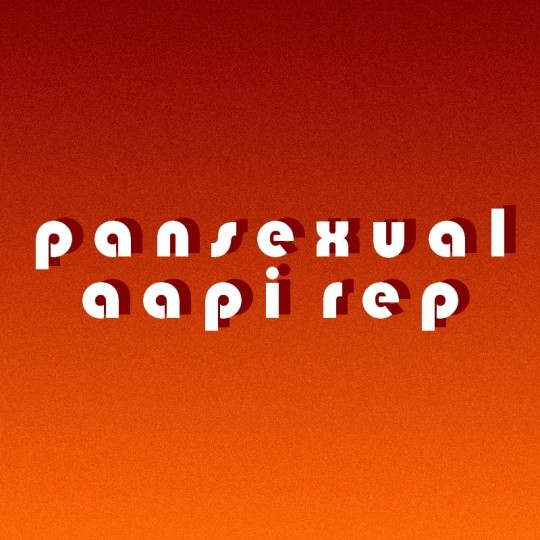
may is aapi heritage month, so i put together a little list of some pan aapi characters written, played, and voiced by aapi authors and actors.
going public by hudson lin (pan chinese mc, taiwanese-canadian author)
soft on soft by mina waheed (pan arab-persian mc, middle eastern author)
iron widow by xiran jay zhao (pan/bi chinese mc, chinese author)
human enough by e.s. yu (pan chinese-american mc, chinese-american author)
beating heart baby by lio min (pan filipino-american mc, chinese-american author)
julie, the expanse (pan and asian, thai-french actress)
delilah, genera+ion (pan and asian, white/chinese actress)
kareema, no tomorrow (pan and indian, indian-american actress)
miggy, single parents (pan and korean-american, korean-american actor)
nandor, what we do in the shadows (pan and iranian, iranian-english actor)
andre, inside job (pan and korean, korean voice actor)
lifeweaver, overwatch 2 (pan and thai, thai voice actor)
nessa, moonbase theta, out (pan and chinese/east asian, korean voice actor)
there aren’t many, but it’s important to highlight what rep does exist, so i hope y’all find some characters, authors, and actors to check out and celebrate this month! 💗💛💙
(this post on instagram!!)
37 notes
·
View notes
Note
Hiya! Umm... I saw your long AAPI/cultural appropriation essay, and you seem to know what you're talking about. Way more than I do.
I'm in a tricky spot and I don't know what to do about it. (I know you may not be the right person but I don't know who else to ask)
So. I'm a traumagenic system. I was lonely, and anime was there for me. I have introjects, sure. But we're polyfrag and it's fuzzy, and for the whole system it feels more than just a source media thing.
We grew up DREAMING about Japan. We studied japanese and tried to sing the original lyrics of songs and search up their meanings as a kid. I'd sometimes try to make english versions of them. Not to hide the original, but because my family couldn't understand the beauty I saw. And I felt such a connection to it...
Now I'm rambling... 😅
I've always wanted to teach Japanese, to use Japanese every day in my life. When I wrote stories I would go search through all the Japanese to english dictionaries and search for the perfect name with the perfect meaning. I thought all the names were gorgeous and appreciated how special they were.
I try and bring Japanese culture into my life every day, even. I listen to Japanese idol groups and pop. I'm still trying to learn japanese, and further more I want to teach it to my community, to create a place where we can come together and learn this language together, as a small country community. To learn and embrace some of their cultures and try new things along the way.
I know that I am not Japanese. I don't want to appropriate them. But I find them so... or not them. But the language and culture and almost everything I find out has me entranced and wanting to learn more. It almost feels like my purpose, or a huge part of my life. My goal. My mission.
I live on the disability pension. I will probably never see Japan in person, and I've heard disability is frowned upon there anyway, to some degree. I don't know if I could even live there, especially if my workability was low. I'm not so young anymore. Even then there are stories of all the people who aim for their dreams and don't make it there. So I dropped it from my cards. I decided if I couldn't do it there... maybe I could do it where I am.
If I'm culturally appropriating Japan and it's cultures I'm happy to give them all the credit. I'm proud of where I found what I have. I adore it and would lift it up any day. But I also adore what I'm doing, what I'm bringing to life. I'm making some Japanese-Aussie vibe culture hybrid or something. I don't know!
But I wouldn't give it up for anyone. If a Japanese person asked me too... I'd prefer to start life over in Japan with no money or resources to my name. I'd probably prefer to live their homeless. I couldn't organise it myself. But I'd take a harsher punishment rather than let it go. I'd prefer to embrace it entirely than ever give it up.
But people online keep saying that nobody should use the names, the language, the cultures... I don't know what to do. I... don't have an answer.
I don't want to be for something so harmful. But I've posted about how names are beyond something that could be taken away. I've disagreed with people of colour about Japanese examples. I've never met a truly Japanese people, beyond watching lessons and shows and blogs and cultural breakdowns. I don't know what they'd say. I've heard that Japanese people praise other cultures for trying to learn their language, from articles online detailing what foreigners should expect. But I know Japan is big on honour culture, so they might just think it and not say their true thoughts to be polite.
Idk what to do!! I want to uplift everyone around me. To build villages for people who I come in contact with. To create openness and to be respectful and create fond memories. I don't want to go down as someone oppressive. But I want to go down as me.
I have no Japanese heritage, no japanese blood or family. I have no rights except for years with nothing else.
I know the answer some people would give is to embrace my own culture. But well... Aussie culture is sort of memes and culture-mix-soup. Beyond white man capitalism and conquering and the white people bible. Aussie culture is "it's hot here and we're like smart, funky, weird sounding bogans". I sort of want more than that.
I want to preserve their (Japans) culture how I found it, if I can. If I accidentally tamper with it, I want to say that, to let it be known. But I like how it is too mostly.
There are some negatives to it too, I know. Like, LGBT rights in Japan, the mental illness stuff, and more. But I'm not willing to leave because of those bad things.
Sometimes moving forward means taking aspects of different places and furthering them together to make something new. Is that cultural appropriation? Will I get in trouble for doing that? And how can I progress it/myself, how can I aspire and dream of a better world if all the jigzaw blocks are forced down to the table and unmovable. What do I do?
I don't understand it. And I don't know what to do about it.
Help.
(sorry it is so long. Sorry 😅😥)
Reading this back, I feel like the indignant child. "I don't want the other one, I want that one." Is that bad? Idk.
I'll just leave this here. What is your take? What do you& think?
Yeah thats a complex situation that I don't really have any kneejerk direct opinions on it towards. I might actually leave this in my drafts for a bit to think about it some cause theres a multi-dimensional aspect to it and a lot to consider that even I don't think I'm entirely all that knowledgable to comment on
(Especially regarding Japanese culture as I am Not Japanese and while there are similar dynamics in how western / white perspectives influence it, the dynamics are different and the histories are different; additionally, of a lot of the 'main big' Asian groups, Japanese is honestly the one I've had some of the least engagement with as the places I've lived have been heavily Vietnamese, Thai, Chinese, and Korean; we have a couple Japanese marketplaces near but beyond community, I don't have too much personal insight into the intricracies of Japanese culture and their opinions on these matters, so do understand ANYTHING from this post is coming from a Indo-Chinese perspective and anything I say on this topic, is to be taken second / less than any Japanese person that might want to key in on it as well)
I do have to say - from what I can tell from this ask alone (which is not necessarily a best sample, a lot of judgement of respect is best seen in Action and not words which asks are limited to) - I do have to say I really think you have a good intent and a better understanding / concern to the complexities of things than a lot of people I've seen who "really like Japan and Japanese culture" so in my more optimistic, generally wanting-to-give-best-faith and progressive culture-sharing perspective, I would like to encourage the dream and intent cause I think the vision is really great and amazing honestly.
The issue I have is that the practical application is pragmatically difficult and a bit uneasy because, as much as I think you have a lot of good intent and probably more than the average person, you aren't the first nor last white person who found themselves enamored and emotionally bonded with an Eastern Culture and with a full heart and chest wanted to help preserve and care for the culture. I don't say it in a means to be accusatory or aggressive, but more so a thing to be cautious if you want to try both holding your dreams and joys in the most respectful manner - but the rhetoric does sound a bit white savior / white knight adjacent. That is just to say that it's important to remember that, in the end of the day, Japanese people don't need you (a white person) to advocate for them or to save them and the culture doesn't need you to spread or preserve it for them.
I don't like to say it because I think with a lot of caution, respect, and passion, people who really love something can do a lot of good in the world; but (and I don't know if this is the case or just my past experience with white people who want to help Eastern cultures making be a bit cautious) inherently if there is any part of you that feels as though you will be a hero or leader in any way or form towards the Japanese / Japanese culture, I think one of the first things you'd need to make sure you do is to toss that dream of heroics out and take a massively more "follower" and "aid" mindset out.
In the end of the day, if you want to help any eastern culture be preserved and what not, its important that you - someone who has never been raised or lived the life - are never the end point of people reaching to it; the best place your role would and should be is a means of connection and resource provision, because in the end of the day, you are going to always be a student compared to those that have lived their life in the environment
With that in mind, I am a person who really likes the idea of healthy and productive sharing of cultures and respectful interactions between them and I also know that in some places - which I assume Australia might be as well - there is not as an abundant AAPI populace and probably not much of a pre-existing environment / people to engage with so the complexities of "leave it to the people of the culture" is not entirely practical.
So with all that in mind, first thing I'd say is - as I said above - listen to Japanese voices over mine. I'm speaking largely from theoretics on what I've seen in trends in other eastern cultures and my own experiences as well as being a relatively more idealistic and open perspective.
Second thing, I would see if there is any pre-existing niches where there might be at least an AAPI center around where you live - see if there are any events or classes or something that you may realistically be able to get involved in. If there aren't any of those, consider seeing if there are any direct cultural derivatives from that to participate (as in arts, crafts, hobbies, etc) - cause in my experience, stuff like martial arts are open things to engage in and they can help you connect with people more familiar and more engaged with the genuine culture.
The main reason I say this is because - other than the risk of falling into the white savior complex - one of the largest obstacles to doing this respectfully and healthily is putting time and effort into getting around how white / western culture has already distorted your understanding of Japanese culture in ways you probably don't know about. (And this isn't only you, cause I also am 100% sure I don't see Japanese culture correctly due to white / western influences; I'm not particularly qualified to talk about it as a result; its a very hard and very long journey for any not-Japanese person to do to get as untainted, genuine, and complete understanding of the culture as possible)
One of the best ways to navigate working on that is to find people and environments that are less-tainted by white / western lenses and influences and to take a more student lens and approach to it; very much a "sit and listen and reflect and do your unpacking homework"
If none of those are available or reasonably possible due to disability and/or financial things, I would strongly recommend reaching out to Japanese communities online (reddit probably has a good community) and getting advice from them as they will have more insight and ideas than I could think up.
I will say, they might be a lot more hesitant and wary than I am, cause again - from what I've seen, I think I'm considered pretty idealistic and a bit of a dreamer when it comes to including non-AAPI people in cultures (some are even uncomfortable with married-in-white people getting involved; my bestie is married to a Chinese person and he's been derogatorily and regularly considered a 'gweilo'; ie derogatory term meaning "Westerner" / "white man" / "ghost man") so you will probably face a lot of people nay-saying it, but I would hope maybe someone shares a little of the optimism / appreciation for the vision that I do, even if it's a minority.
That said, I think if you do want to honestly go forward with this and try to do so with the most respect and healthiest lens, I think it is important that you inevitably face the amount of distrust a lot of AAPI have towards white / western involvement in their culture face on and deeply develop a very complex and nuanced understanding to your place and position in the overall roles, history, and participation in it. Cause if you do want to help and do want to be a part of it, it's important to understand where YOUR culture comes into play with all of this. Cause you aren't Japanese and you will never be Japanese, even if you were an expect PhD holding person living in Japan. Inherently you will always be the white person engaging with Japanese culture, and so its important to remember that with you, you bring your own culture into this and that is something that has to be dissected in relationship to it all.
Third, and (less important but relevant) I do not at all mean this to diss on the culture or anything, but a lot of Eastern cultures have something of bad blood towards Japan and I don't honestly know the details enough nor have the energy to Properly Get Into It in a way that won't be misread without nuance by White Piss on the Poor Tumblr, but if you don't know what or why that bad blood exists, it'd be good to try to read into it and look into non-Japanese AAPI voices about it. This isn't to say that "its a bad culture", but more so that if we are talking about seeing the history as a whole, its important to know the impacts Japan and Japanese cultures have had on related cultures which, unfortunately, Japan has been a large part of. (China, Phillipines, Korea, etc)
Overall, it'd probably be an unpopular opinion among other AAPI, but I like the vision and passion you have for it and while I'm a bit hesitant to give support because I know how many people say similar things then fail to do all the work it takes to Do It Right ((ie, I honestly haven't really seen it ever, that said I haven't put the effort into trying to see it happen ever)), if you are willing to do all the tedious and life long homework of understanding your culture, Japanese culture, the ways your and Japanese culture interact to impact your understanding of BOTH cultures, white / western history, white / western history with AAPI cultures and Japan's culture, Japan's history within overall AAPI history, etc and are willing to do your due diligence to network, get involved, and engage with less white-tainted and warped parts of the culture AND navigate a lot of the inherent (fair, earned and justified) distrust to white / western involvement in culture, then I don't think you might have some merit to the dream.
Like it's going to be a LOT of work, a life long thing of work and admittedly, you will likely never be the expert or the advocate or the person you idealistically dream to be and that sounds negative, but in Buddhist philosophy, you are never meant to actually obtain perfection and its considered near impossible to reach "true enlightenment", but we aim for it anyways because the ideal is 1) worth aiming for and 2) we do it because it is good to try and do it anyways as the ideal is not necessary to enjoy the good that genuine and good work towards the ideal.
I guess the last parting thing I'd put out is that a really helpful concept and lens I'd recommend sitting on and thinking about is one of my favorite Buddhist lines of thoughts from Shunryu Suzuki here as it might be helpful in persisting against a lot of the inherent obstacles you will face should you genuinely intend to do it right, cause you are going to probably inherently - due to being white, western and not around any actual japanese culture - "the bad horse".
In general, I think in the end, one of the things that also would be really helpful is that I mention a lot of being a student to the Japanese culture and whether or not you want to take the writing in the Zen Buddhist idea of Zen behavior or just generally keeping a very respectful and chronic student lens to any really insurmountably large and complex topic that you are inherently disadvantaged in (such as learning and respecting a culture that you have no inherent place in), I recommend giving Shunryu Suzuki's book on "The Beginner's Mind" a read / listen.
Overall, that book has helped me so much in both mental health, goal seeking, system management, and overall my perspective on people and culture beyond a simple "buddhist" lens so I really really strongly recommend it.
#alter: fei#ask#asks#actually aapi#actuallyaapi#complex ask#the beginners mind#beginners mind#feathers once again slides people the beginners mind#I SWEAR#look its mostly Riku brain that screams about that book#and the whole system just clowns on me for it#because I somehow have large passages memorized despite only listening to it once#but that book sits in my head rent free and I think about it and its concepts on a daily#and Chunn and XIV and Ray regularly have to know it to talk about it with me#its a really fucking good book other than just for the buddhist stuff#its just really good at breaking down the complexities of learning and respecting anything and just how important it is to be bad at someth#*something#its one of the best ways of learning that not only is it okay and natural to suck at things#but it is arguably preferable to suck at things and that sucking is not only OK#but literally important to being good at what you do#even at the expense of never being 'good' at what you do#and that in itself is very freeing#ANYWAYS I GOT OUT OF FEI BRAIN AND INTO RIKU BRAIN JUST#CAUSE THE BOOK IS GOOD I SWEAR TO GOD#EVERYONE NEEDS TO READ IT / LISTEN TO IT I SWEAR TO GOD#favorite book i guess#alter: riku#<- i guess
10 notes
·
View notes
Photo
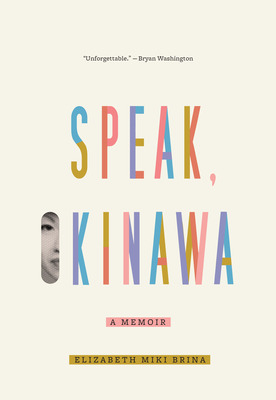
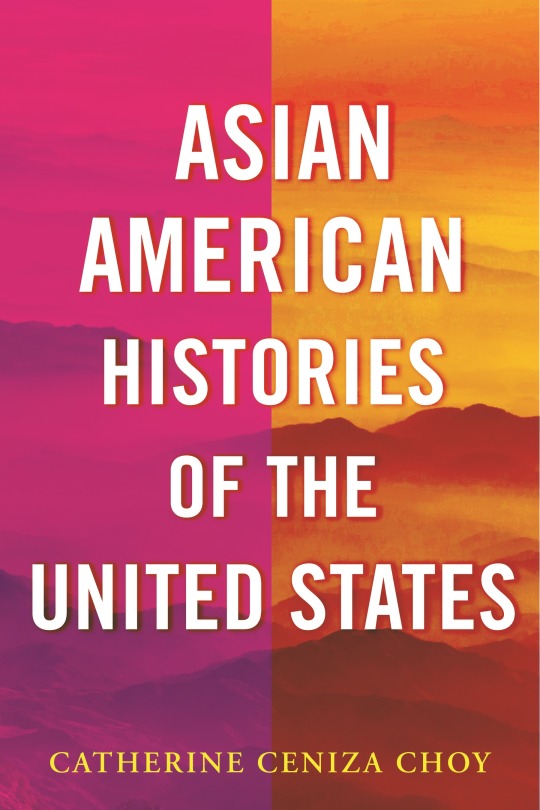
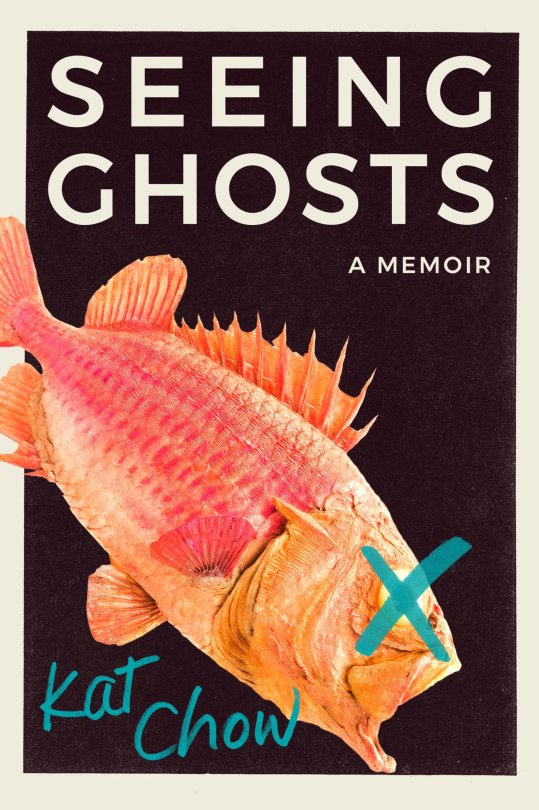

Asian American & Pacific Islander (AAPI) Heritage Month: Nonfiction Recommendations
Speak, Okinawa by Elizabeth Miki Brina
Elizabeth's mother was working on U.S.-occupied Okinawa when she met the American soldier who would become her husband. The language barrier and power imbalance defining their early relationship followed them to the predominantly white, upstate New York suburb where they moved to raise their daughter. There, Elizabeth grew up with the trappings of a typical American childhood, while feeling almost no connection to her mother's distant home and out of place among her peers. This account is a heartfelt exploration of identity and what it means to be an American.
Asian American Histories of the United States by Catherine Ceniza Choy
Original and expansive, this volume is a nearly 200-year history of Asian migration, labor, and community formation in the U.S. Reckoning with the onset of the COVID-19 pandemic and the surge in anti-Asian hate and violence, historian Catherine Ceniza Choy presents an urgent social history of the fastest growing group of Americans. The book features the lived experiences and diverse voices of immigrants, refugees, US-born Asian Americans, multiracial Americans, and workers from industries spanning agriculture to healthcare.
Seeing Ghosts by Kat Chow
Born two years after her parents' only son died just hours after his birth, Kat Chow became unusually fixated with death. She worried constantly about her parents dying - especially her mother. Four years later when her mother dies unexpectedly from cancer, Kat, her two older sisters, and their father are plunged into a debilitating, lonely grief. In this memoir, Kat weaves together what is part ghost story and part excavation of her family's history of loss spanning three generations and their immigration from China and Hong Kong to America and Cuba.
Rise by Jeff Yang, Phil Yu, & Philip Wang
In this intimate, eye-opening, and frequently hilarious guided tour through the pop-cultural touchstones and sociopolitical shifts of the 1990s, 2000s, 2010s, and beyond, authors Yang, Yu, and Wang chronicle how we’ve arrived at today’s unprecedented diversity of Asian American cultural representation through engaging, interactive graphics, charts, graphic essays from major AAPI artists, exclusive roundtables with Asian American cultural icons, and more.
#asian american pacific islander heritage month#AAPI#AAPI authors#nonfiction#nonfiction reads#nonfiction books#Library Books#Book Recommendations#book recs#Reading Recs#reading recommendations#TBR pile#tbr#tbrpile#to read#Want To Read#Booklr#book tumblr#book blog#library blog
46 notes
·
View notes